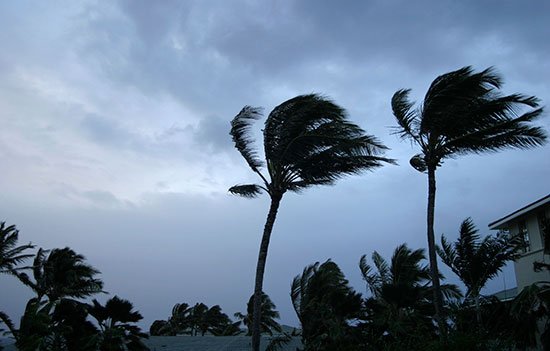For owners in coastal states, the 2020 hurricane season might imply monetary catastrophe. Named storms are rolling in at a document tempo, with as many as 25 anticipated within the Atlantic this season — twice the typical quantity. After battering the Louisiana coast in late August, Hurricane Laura alone could account for as a lot as $12 billion in insured losses.
Even if you happen to suppose you’re ready, it’s possible you’ll uncover that your owners insurance coverage doesn’t totally cowl harm from a hurricane. To be sure you’re protected, keep away from these 4 pricey pitfalls.
SKIPPING FLOOD INSURANCE
Flood insurance coverage is non-obligatory, and solely 15% of American households purchase it, says Mark Friedlander, spokesperson for the Insurance coverage Data Institute.
However when a hurricane or storm hits, flooding causes extra residential losses than excessive winds, in keeping with a 2019 report from the U.S. Congressional Price range Workplace. Which means most householders, even these with hurricane or wind protection, aren’t insured for probably the most extreme storm risk they face.
“The largest error folks make is that they suppose it received’t occur to them,” says Patty Templeton-Jones, president of Florida-based insurer Wright Flood.
Virtually no one is immune. Flooding has affected 99% of U.S. counties since 1996, in keeping with the Federal Emergency Administration Company. And even just a little floodwater may be extremely harmful; FEMA says an inch may cause as a lot as $25,000 in harm.
Flood insurance coverage sometimes comes from the Nationwide Flood Insurance coverage Program through one in all its licensed suppliers, and protection is offered individually for the construction and contents of the house.
NOT SECURING COVERAGE IN TIME
When a hurricane is on its method, it might be too late so as to add protection to your owners coverage.
“Don’t wait till the storm is coming,” warns Friedlander. “Most insurers will put a moratorium in place as soon as a robust watch or warning is issued by the climate service, so you may’t make any modifications to your coverage.”
You’ll sometimes want to purchase flood insurance coverage at the very least 30 days prematurely. Some states may impose a ready interval if you buy a coverage for wind harm. Though most traditional owners insurance policies cowl windstorm harm, homeowners with no mortgage can generally decide out.
For those who don’t have windstorm protection, or if you’re among the many 9% of U.S. owners who don’t have property insurance coverage in any respect, insurers typically let you add it as long as there isn’t any energetic hurricane watch.
CHOOSING A DEDUCTIBLE YOU CAN’T AFFORD
Many owners don’t pay a flat greenback quantity per hurricane insurance coverage declare as they might for a fireplace or theft. As a substitute, they pay a proportion of their dwelling’s insured worth earlier than the insurer kicks in. The quantity can vary from 1% to 10%.
This implies if your house is insured for $300,000 and also you selected a 5% hurricane deductible, you could possibly be liable for as much as $15,000 earlier than the insurance coverage firm begins paying.
Since a big deductible typically means a decrease insurance coverage premium, it’s possible you’ll be tempted to just accept a excessive proportion and hope you by no means must file a declare. That may be a mistake, says Lynne McChristian, director of the Workplace of Threat Administration and Insurance coverage Analysis on the College of Illinois at Urbana-Champaign.
“Individuals ought to by no means take a better deductible than they will afford,” she says. “The quantity you save in premiums is insignificant in comparison with the quantity you’ll get at declare time.”
To keep away from a probably large monetary hit, be sure you’re snug along with your hurricane deductible and the insured worth of your house.
NOT HAVING ENOUGH COVERAGE
The aim of insurance coverage is to make sure you can cowl your prices after a catastrophe. However if you happen to aren’t cautious, you could possibly come up brief as bills pile up within the wake of a hurricane.



